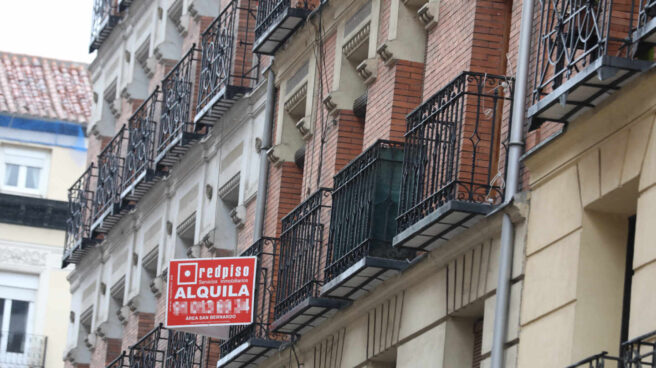

Apartment for rent.
According to a study by the Barcelona Urban Property Chamber (CPUBCN), the supply of rental housing in Barcelona has fallen by 60% over the past five years. This is the result of an analysis of the offers of the three main real estate portals Habitaclia, Fotocasa and Idealista. The chamber attributes the drop in supply to a lack of new housing, “legal insecurity” for owners and the threat of rent caps, as well as greater stability in existing leases.
The study confirms that Barcelona is the capital of Spain that leads in terms of access to housing, despite housing policy being a priority in two mandates Ada Colau. The Catalan capital is also registered rental price records, which, according to Incasòl, the soil institute of the Generalitat, is increasing annually by 12.7%. The Chamber’s research confirms this increase and also indicates 10% reduction in the number of new leases.
According to data collected by the Chamber, from November 27, 2018 to the same date in 2023, the supply of rental homes in Habitaklia fell by 67.37%, from 8,437 to 2,753 homes. In Fotocasa the reduction was 60.68% – from 7179 to 4356 houses, and in Idealista it was 49.53% – from 10423 to 5260 houses. “Averaging three portals, Commercial rental supply reduced by 59%” emphasized the head of the Chamber, Oscar Gorgwhen presenting the study.
Legal uncertainty
In the findings of the Barcelona Rental Market Report, the organization emphasizes that the Catalan capital “is experiencing a significant shortage of apartment supply, caused by strong demographic pressure, which is not accompanied by the construction of new housing.” But he also warns of the “legal uncertainty” the new rules expose owners to.
Catalonia has introduced legal reforms to the housing market by passing the Right to Housing Act of 2007, which allows developers to be obliged 30% reservation of new shares and buildings restored for social housing. The measure, which Barcelona City Council agreed to implement in the city in 2018 (the only Catalan city council to do so), has led to a drop in new developments, according to the Chamber of Contractors.
In 2020, Parliament approved the Law on Regulation of the Rental Market, which established rental price limits -the clause was appealed and suspended by the Constitutional Court – and establishes obligation to offer social rent vulnerable tenants for “large owner-occupiers” created from five homes.
This legal insecurity, the City Property Chamber warns, harms the supply of the population “with fewer resources” Additionally, they add, owners are “preferring to dispose of their capital” and take their properties off the market in the face of “the threat of rent control.” “
Contract stability
The organization also notes that both owners and tenants are seeking greater contract stability, helped by new regulations extending contracts to 7 years. Thus, already rented apartments practically do not appear on the market, since the owners, “when they find a good tenant,” are in favor of extending the contract.
Each change of tenant means that the owner pays the costs of furnishing the house, its maintenance, the cost of keeping the house empty and commissions to real estate agents, they point out, to explain the low turnover in the market and the lack of decline in demand. Commercial offer. “In fact, many apartments are no longer on the market because they operate on a referral basis or a one-by-one basis.”
Source: El Independiente